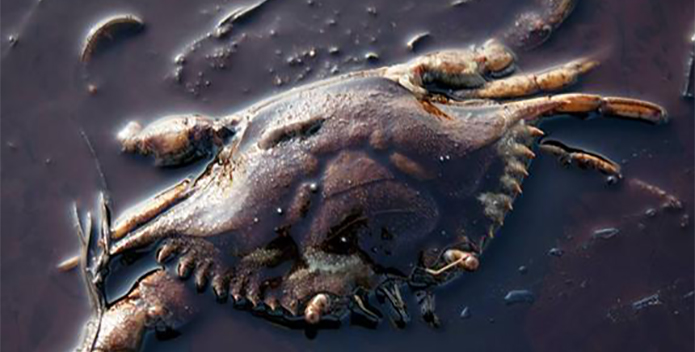Magic happens when fresh and salt water collide. Life explodes in estuaries, as they are some of the most productive ecosystems in the world. We witness this every day in the Chesapeake Bay, North America's largest estuary.
Here at CBF, we expend a massive amount of time, energy, and resources on protecting and restoring the rivers and streams that feed the Bay, and rightly so. But just as important to the environmental productivity of the Bay is the health of the ocean. The waters off the mouth of the Chesapeake are as much a part of the Bay system as all the fresh water rivers that feed it.
Given this reality, we are alarmed and concerned following the Trump administration's decision to open coastal waters off the Bay to oil drilling. As CBF President Will Baker states, "Drilling offshore poses unjustifiable risks to the Bay, its living resources, the tourism economy, and the many jobs that depend on clean water."
We are beginning to see real progress in Bay restoration. Just this week, the Chesapeake Bay Program released its Bay Barometer, which found the highest water quality in the Bay since they started keeping records in 1985. Now is not the time to put that progress at risk.
This Week in the Watershed: A New Bay Report Card, Ocean Health, and Ill-Advised Drilling
- The Chesapeake Bay Program released its Bay Barometer, finding improving water quality, fisheries, and habitat throughout the Bay and its rivers and streams. (Bay Journal) BONUS: CBF Statement
- Low oxygen dead zones are not only a problem in the Bay, but the world's oceans as well. (Science Daily)
- The Trump administration plan to allow drilling off the Atlantic Coast is facing resistance for the threat it poses to the region's economy, environment, and fishing industry. (Baltimore Sun—MD) BONUS: CBF Statement
- With legislative sessions in Maryland and Virginia approaching, there are several environmental issues to watch. (Bay Journal)
- Calling all volunteers! CBF is looking for Virginians interested in growing underwater grasses. In the spring, volunteers will plant their grasses in nearby sites. (Free Lance Star—VA) BONUS: CBF Press Release
What's Happening Around the Watershed?
January 10
- Annapolis, MD and Richmond, VA: Legislative session starts in both Maryland and Virginia—stay tuned for how you can take action for clean water in the Bay and your local rivers and streams!
January 21
- Easton, MD: Join us for a delightful afternoon enjoying oysters and wine. Hear from wine connoisseurs and representatives from three Eastern Shore aquaculture farms: Orchard Point Oysters, Madhouse Oysters, and Hoopers Island Oyster Company. There will also be oyster policy experts and scientists on hand to provide information and answer questions. Click here to register!
January 25-February 3
- Throughout Virginia: Help restore the health of the Chesapeake Bay and Virginia's rivers by participating in CBF's Grasses for the Masses program. Participants grow wild celery, a type of underwater grass, in their homes for 10-12 weeks. After 10-12 weeks of grow-out, participants will gather to plant their grasses in select local rivers to bolster grass populations and help restore the Bay. With workshops held throughout Virginia, there's plenty of opportunity to get involved. Click here to find one near you!

Issues in this Post
Offshore Drilling Blue Crabs Chesapeake Clean Water Blueprint Conservation Fisheries Habitat Loss Offshore Drilling Water Quality CBF in Maryland CBF in Virginia Eastern Shore Office CBF at the Federal Level Hampton Roads Office Maryland Office, Annapolis CBF in Pennsylvania Virginia Office, Richmond



